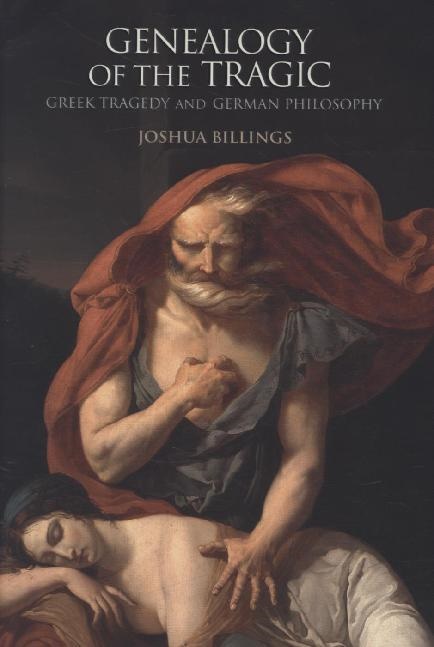Read more
Zusatztext "[Billings'] Genealogy is an impressive study that pinpoints distinctions, elucidates complexities and helps to show how they arose and why they matter. His readings are adroit and scrupulously contextualized. . . . Here is a book whose subtlety and scope prompt further reflection on profoundly important matters." ---Michael Silk, Times Literary Supplement Informationen zum Autor Joshua Billings is assistant professor of classics and humanities at Yale University. Klappentext Why did Greek tragedy and "the tragic" come to be seen as essential to conceptions of modernity? And how has this belief affected modern understandings of Greek drama? In Genealogy of the Tragic! Joshua Billings answers these and related questions by tracing the emergence of the modern theory of the tragic! which was first developed around 1800 by thinkers associated with German Idealism. The book argues that the idea of the tragic arose in response to a new consciousness of history in the late eighteenth century! which spurred theorists to see Greek tragedy as both a unique! historically remote form and a timeless literary genre full of meaning for the present. The book offers a new interpretation of the theories of Schiller! Schelling! Hegel! Hölderlin! and others! as mediations between these historicizing and universalizing impulses! and shows the roots of their approaches in earlier discussions of Greek tragedy in Germany! France! and England. Zusammenfassung Why did Greek tragedy and "the tragic" come to be seen as essential to conceptions of modernity? And how has this belief affected modern understandings of Greek drama? In Genealogy of the Tragic ! Joshua Billings answers these and related questions by tracing the emergence of the modern theory of the tragic! which was first developed around 1800 by thinkers associated with German Idealism. The book argues that the idea of the tragic arose in response to a new consciousness of history in the late eighteenth century! which spurred theorists to see Greek tragedy as both a unique! historically remote form and a timeless literary genre full of meaning for the present. The book offers a new interpretation of the theories of Schiller! Schelling! Hegel! Hölderlin! and others! as mediations between these historicizing and universalizing impulses! and shows the roots of their approaches in earlier discussions of Greek tragedy in Germany! France! and England. By examining eighteenth-century readings of tragedy and the interactions between idealist thinkers in detail! Genealogy of the Tragic offers the most comprehensive historical account of the tragic to date! as well as the fullest explanation of why and how the idea was used to make sense of modernity. The book argues that idealist theories remain fundamental to contemporary interpretations of Greek tragedy! and calls for a renewed engagement with philosophical questions in criticism of tragedy. Preface xi Note on Translations, Citations, and Abbreviations xv INTRODUCTION: Tragedy and Philosophy around 1800 1 TRAGIC MODERNITIES Chapter 1: Quarreling over Tragedy 19 Ancients and Moderns on Tragedy 21 Nach Athen: Literary Models in Germany 32 Chapter 2: The Antiquity of Tragedy 45 Guillaume Dubois de Rochefort: Tragedy and Cultural Difference 46 Johann Gottfried Herder: Tragedy for the Volk 53 Returns to the Greek: Translation, Philology, Performance 59 TRAGIC THEMES Chapter 3: Revolutionary Freedom 75 The Tragic Sublime: Schiller and Schelling 80 Schiller's System of Tragic Freedom 88 Criticism and Scholarship: A. W. Schlegel and Gottfried Hermann 97 Chapter 4: Greek and Modern Tragedy 105 Friedrich Schlegel: Nature, Art, Revolution 107 Schiller: "The Limits of Ancient and Modern Tragedy" 113 Schelling: Identity and History in the Philosophy of Art 123 Chapter 5: Tragic Theologies 133 A Poetic Religion 135 "...
Report
"Readers of Greek tragedy and readers of German Idealism, whether classicists or not, have much to learn from this important book."--Constanze Güthenke, Princeton University

